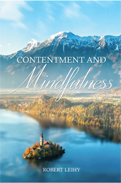
 |
Using his knowledge of Buddhism, Leihy weaves together a multitude of examples and references to demonstrate the benefits of deep relaxation and emotional detachment in the day-to-day lifestyle. Specifically, a compelling argument from Buddhism that Leihy references is the idea that suffering is inevitable, and “all of life is suffering,” but what is controllable is one’s attitude towards it.
In a nutshell, Leihy is helping his audience understand how to be unfazed by both positive or negative outcomes and to simply live in the moment. Citing a TED talk from Harry Cliff, the author dives into the existence of the “Higgs” field. More important, however, is the concept shared by numerous faiths that “God is in all things.” When one adopts the worldview that mankind, more or less, is the choreography of a higher power, it limits the responsibility and the stress associated with unfavorable outcomes.
Leihy’s ability to simplify complex concepts into digestible nuggets is clear. One such example is the concept of solipsism—the idea that only the self exists—and the world is a manifestation of our mental realities. Moreover, the age-old discussion between free will and predestination is integrated into this text and provides additional layers of insight. The collective worldviews presented in this text ultimately seek one common goal: virtuous living. Where philosophers throughout history have spent hundreds if not thousands of pages circling around the topic of contentment and mindfulness, Leihy delivers the main points succinctly and with a clear-cut writing style that can appeal to the layman as a strong introduction to such dense topics.